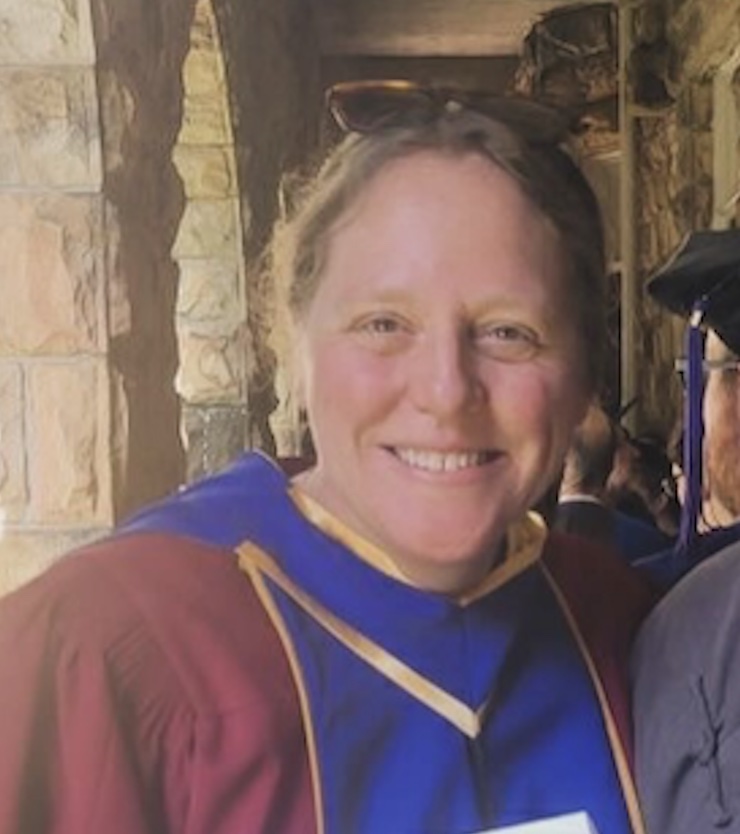Professor of History
B.A., Colgate University; M.A., Western Washington University; Ph.D., University of British Columbia
Kelly J. Whitmer is a historian of science who works on the history of Central Europe (c. 1500-1900) in global context. She writes and teaches about the history of collecting, pedagogy, scientific communities and future-focused forms of social experimentation in the past. Courses she offers at Sewanee include: “Crisis and Catastrophe in Early Modernity,” “Monsters, Marvels and Museums” and “Science, Society and the Archives.” Whitmer received a “collaborative curriculum” grant for the development of “Science, Society and the Archives” from the Associated Colleges of the South.
Her new book, Useful Natures: Science, Pedagogy and the Power of Youth in Early Modern Central Europe will appear in March 2026 as part of Brepols Press’ Techne series. Drawing much needed attention to science’s fascination with youth’s power, Useful Nature(s) highlights efforts to derive benefit from the young person’s relationship to the future and potential to dramatically reconfigure knowledge-making practices and communities. She received support for Useful Nature(s) from a Herzog-Ernst-Scholarship at the Forschungszentrum Gotha (FZG) Universität Erfurt, a fellowship from the Marbach Weimar Wolfenbüttel Forschungsverbund (MWW) and a research fellowship from the Alexander von Humboldt Foundation.
With colleagues from the Georg August University of Göttingen and the University of Hamburg she convened a workshop on “Object Pedagogies and Academic Collections in the History of Science'' (funded by the Fritz Thyssen Foundation) in September 2021. It resulted in a co-authored a special issue of Nuncius: Journal of the Material and Visual History of Science that appeared in 2023. Whitmer recently coedited a 2025 special issue of the Journal of the History of Knowledge entitled "Knowledge and Power: Projecting the Modern World." A description of this special issue can be found here.
Selected Publications:
- 2025 “Knowledge and Power: Projecting the Modern World,” with Vera Keller and Ted McCormick, Journal for the History of Knowledge, October, xx-xx
- 2025 “Youth, happiness and institutional projects in the early eighteenth-century German lands,” Special Issue of the Journal of the History of Knowledge 6 (October)
- 2024 "Introduction: Collections and Pedagogies of Objects in European Learning Environments" with Dominik Hünniger, Nuncius: Journal of the Material and Visual History of Science (Brill) 39, 567-587
- 2024 “Dendrites as objects of care and speculation: teaching with mineral-paleontological collections at the University of Göttingen in the early eighteenth century” in Nuncius: Journal of the Material and Visual History of Science (Brill) Nuncius 39 (October), 613–640
- 2022 “Putting Play to Work: Collections of Realia and Useful Play in Early Modern Educational Reform Efforts,” in Collective Wisdom: Collecting in the Early Modern Academy, edited by Vera Keller and Anna Marie Roos (Turnhout: Brepols Techne Series), 39-68
- 2019 “Reimagining the ‘nature of children’: Realia, reform and the turn to pedagogical realism in central Europe, c. 1600 – 1700,” Journal of the History of Childhood and Youth 12, 113-35
- 2018 “Projects and pedagogical expectations: Inside P.J. Marperger’s ‘Golden Clover Leaf’ (Trifolium), 1700-1730,” Notes and Records: The Royal Society Journal of the History of Science Special Issue 72, 139-57
- 2017 “Imagining Uses for Things: Teaching ‘Useful Knowledge’ in the Early Eighteenth Century,” History of Science 55, pp. 37-60
- 2015 The Halle Orphanage as Scientific Community: Observation, Eclecticism and Pietism in the Early Enlightenment. UCP, c2015
Whitmer’s first book explored the Halle Orphanage (founded c. 1700) as a key institutional venue for the pursuit of collaborative scientific research, focusing specifically on the organization’s promotion of eclecticism as a tool for becoming an able observer. She developed the project as a postdoctoral fellow at the Max Planck Institute for the History of Science in Berlin and received support from Sewanee and the Appalachian College Association as well. Whitmer's work on the Halle Orphanage was reviewed in the American Historical Review, featured on the New Books Network, in an H-Ideas Blog focused on premodern Universities and in discussions about space and collections in Halle, Leipzig and Dresden.
Areas of Expertise
- Early Modern Europe
- Germany History of Science and Technology
- Scientific Observation
- Collecting and the History of the Museum History of Children and Youth History of Education


